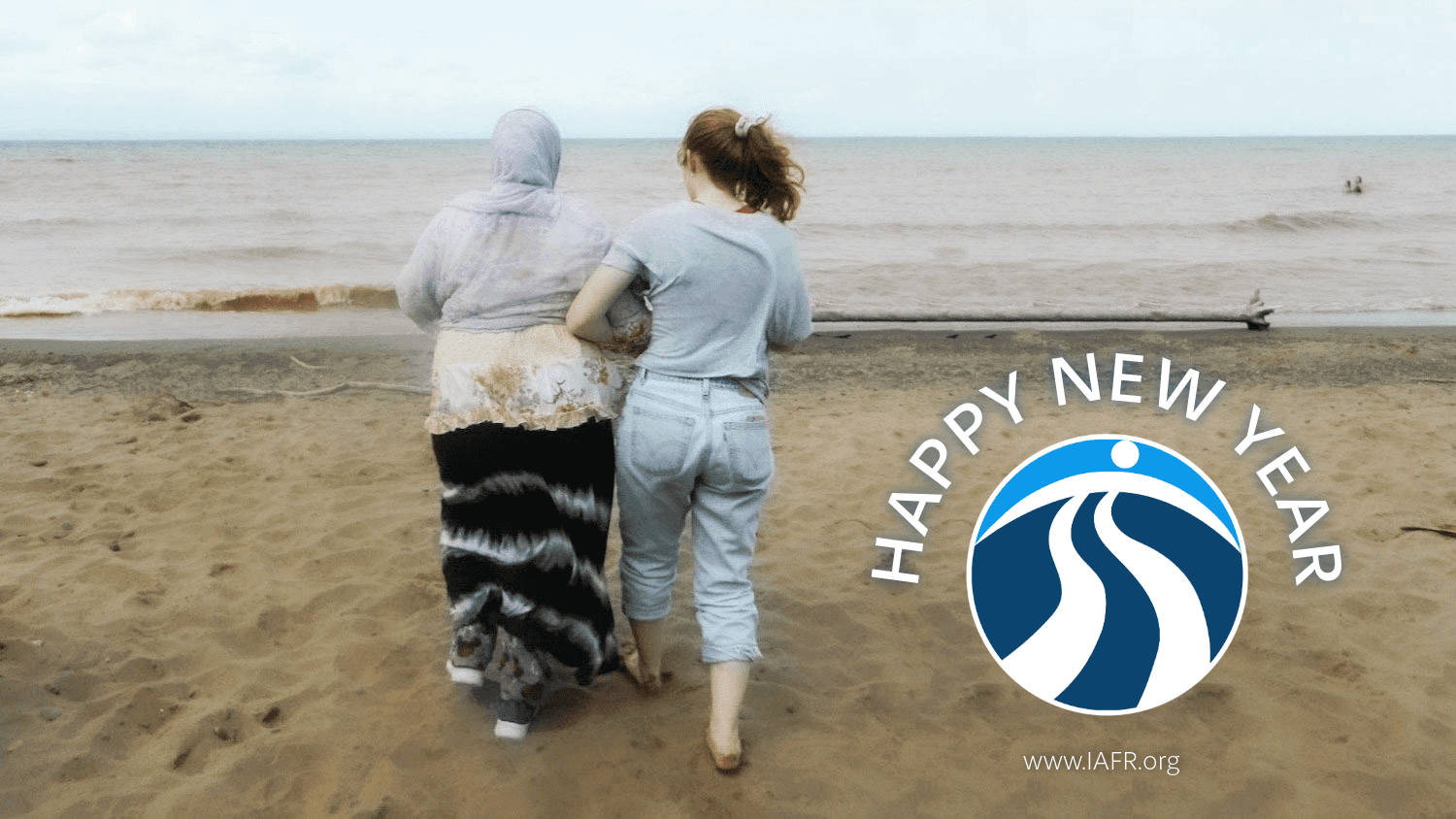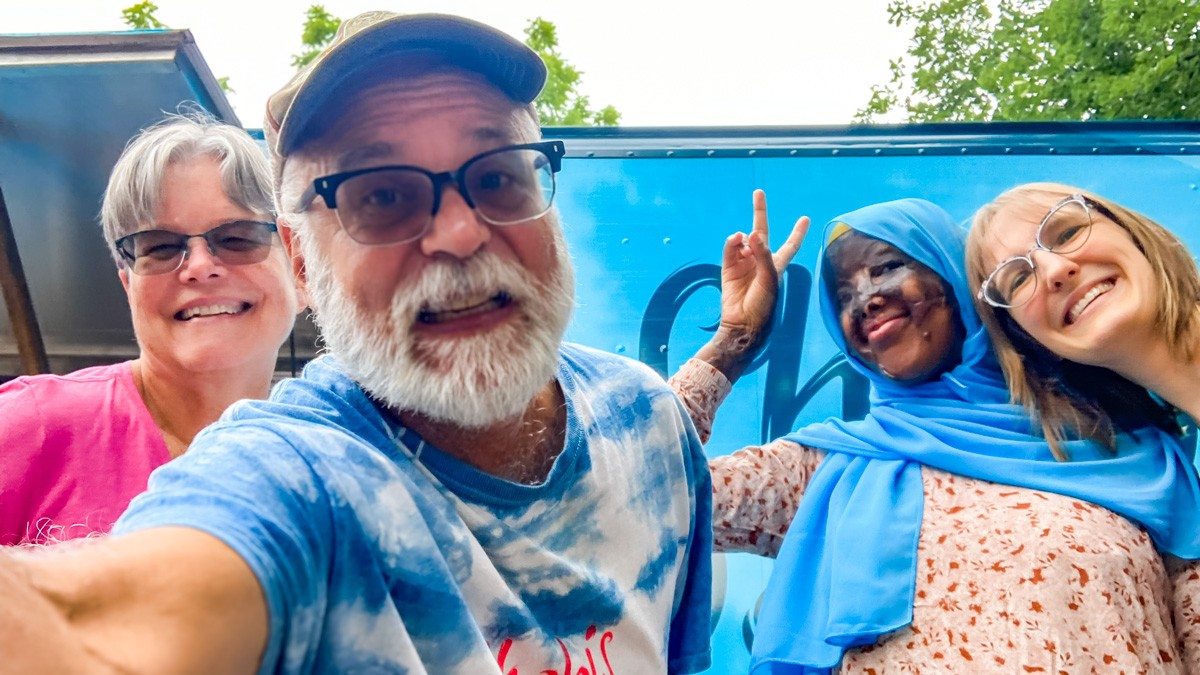Are refugees a threat?
Feb 20, 2025
- Pastor Gatera with Rachael Lofgren
"Pastor, my friend, what do you have to say about the refugee situation in the US? What do you have to say about news reports claiming refugees are a threat to public safety and national security?"
These are the questions my friends here in the US are asking me. I cannot let my answer be silence.
…take a breath when you are in the sea, even though you fear drowning.
Life has taught me that sometimes it is better to take a breath when you are in the sea, even though you fear drowning. When there are strong waves you cannot control, you are watching for a direction to swim safely to shore. Now, I can say something: I am safely on the shore of the sea of displacement, navigating the way to a new home. I speak from experience.
Are refugees a threat to public safety?
Are refugees a threat to public safety and national security if they are resettled to other countries? Absolutely not. The facts are:
Refugees who get approved for resettlement to the US are the most questioned and vetted people on the planet. It takes years. There are so many interviews and assessments made before a person receives formal protection status from the United Nations.
After qualifying for the UN refugee resettlement program, refugees have to pass through a new set of interviews with potential countries of resettlement. This can take a very long time. It seems like forever when you are starving in a refugee camp for years on end with no way to make a living and no control over your future and no education for your children.
This length of time is due to multiple factors. For one, resettlement is considered a privilege. No country starts with a guarantee that they will accept a refugee for resettlement. The UN looks for potential countries of resettlement - nations with enough resources to resettle people and willing to consider receiving a particular refugee. Developing countries simply don't have the necessary resources and infrastructure to offer resettlement. Resettlement to the US or Canada is high on the wish list of many refugees because they are safe and stable countries in which people can rebuild their lives.If a refugee is deemed eligible for resettlement from the thousands of refugees waiting in line, their case is handed over to the Embassy of the country or countries willing to consider resettling them. Of course, there is no guarantee that the refugee will get a chance at a new life until the possible host country finishes its eligibility assessments. The vetting process of the US in particular is very stringent with many layers.
The mix of hope and uncertainty during this stage of the resettlement process makes it one of the most stressful experiences refugees endure. Let me share from my personal experience.
First, my case was handed to the refugee admissions program of my prospective country of resettlement (USA). They began their process with a fresh interview for US immigration officials.
Next, after a long wait (months and often years), I was called to an in-person interview with US immigration lawyers. They told me to give them access to all of my phone numbers and emails - all of the contact info I had. They asked me questions I had never encountered in my entire life.
We, as refugees, ache for a place to call home with peace and security.
The trauma of hope clashing with the misery of waiting is difficult at this stage. I wondered if I would get a new life or not. Eventually, I received the decision from the US by mail. I've known many people who were not able to open their letter right away because of the stress and fear of what that piece of paper might say. I've seen people shed tears of joy and others who shed tears of despair.
When the letter is one of rejection, I have seen people fall to their knees in prayer, calling upon God, hoping for a day when they, too, will find a way to a new home.
When a refugee receives a welcome letter, they begin to envision a better future - a future with a welcoming community and opportunities to rebuild their life and put down roots instead of being stateless and homeless without a country.
A welcome letter is a small light at the end of a long tunnel
At this stage the welcome letter is a small light at the end of a long tunnel for those who get the chance to be resettled. But the journey is still not over.
After the welcome letter, we must pass through required medical examinations to ensure that no one with transmittable diseases is left untreated. Those without health issues are allowed to board a plane to go to a new country and begin the long and difficult process of building a life all over again.
This was my journey.
This was my journey. This is the journey of thousands of our brothers and sisters.
I am asking the church to be a voice and reason in society and to fill the gap in this difficult time for refugees.
We are not a threat to public safety and national security. We are your brothers and sisters who long for home.
—-
Pastor Gatera was born to refugee parents in the 1970s and spent most of his life in refugee camps in Rwanda, DR Congo, Tanzania, and Kenya. During that time, he became a follower of Jesus and later a refugee pastor. He spent nearly 20 years in Kakuma refugee camp, Kenya. That's where he met his wife and raised his family. They were resettled to the US in 2016. He currently serves with IAFR as our Refugee Church Consultant. CLICK HERE to learn more about his incredible life and ministry.
Other Featured Posts

Reciprocity: experiencing God's blessings together
Feb 19, 2026

An empty seat
Feb 4, 2026

Statement Concerning ICE in Minnesota
Jan 23, 2026

Harvest Season at Hope Community
Jan 15, 2026

Happy New Year!
Dec 31, 2025

Merry Christmas from IAFR
Dec 23, 2025

Love Made Me Forget My Scars
Dec 17, 2025

Hope Has a Name
Dec 10, 2025


